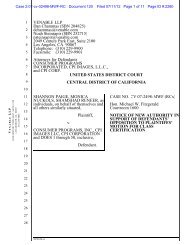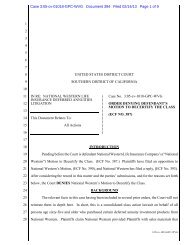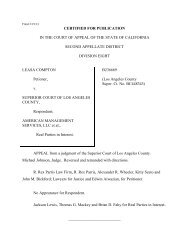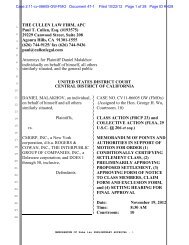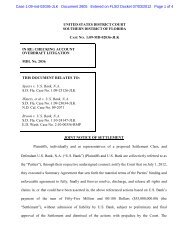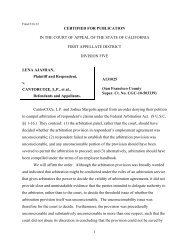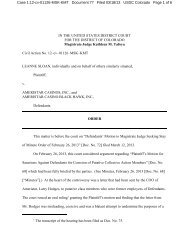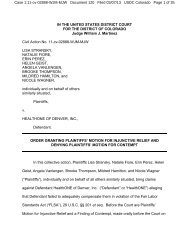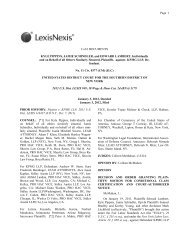here - FindLaw
here - FindLaw
here - FindLaw
Create successful ePaper yourself
Turn your PDF publications into a flip-book with our unique Google optimized e-Paper software.
C. Application of Texas Law<br />
We must now determine whether Texas law or the FAA ―is contrary to a<br />
fundamental policy of California. If t<strong>here</strong> is no such conflict, the court shall enforce the<br />
parties‘ choice of law. If, however, t<strong>here</strong> is a fundamental conflict with California law,<br />
the court must then determine whether California has a ‗materially greater interest than<br />
the chosen state in the determination of the particular issue . . . .‘ . . . If California has a<br />
materially greater interest than the chosen state, the choice of law shall not be enforced,<br />
for the obvious reason that in such circumstance we will decline to enforce a law contrary<br />
to this state‘s fundamental policy.‖ (Nedlloyd, supra, 3 Cal.4th at p. 466, citation & fns.<br />
omitted.)<br />
Under Texas law, an arbitration agreement containing a modification provision<br />
must expressly state that a change in the agreement will not apply to a claim that has<br />
arisen or is known to the employer. Under California law, a court may imply such a<br />
restriction if an arbitration agreement is silent on the issue. Both states value an<br />
employer‘s commitment to mutual binding arbitration that does not countenance<br />
retroactive changes. Indeed, by requiring that employers include an express savings<br />
clause in an arbitration agreement, Texas law is more demanding than California law,<br />
which, depending on the circumstances, may imply such a restriction. Thus, it can hardly<br />
be said that Texas law is contrary to a fundamental policy of California. And the<br />
prevailing view under the FAA is substantially similar to Texas law with two notable<br />
exceptions: Like California law, the FAA (1) permits implied as well as express terms to<br />
limit an employer‘s unilateral right to change an arbitration agreement and (2) does not<br />
distinguish between a stand-alone arbitration agreement and an arbitration provision that<br />
is part of an employee handbook, manual, or set of rules in determining enforceability.<br />
The question remains as to whether Texas law or the FAA should determine if the<br />
Agreement is illusory. Neiman Marcus argues that Texas law governs. Peleg urges<br />
application of the FAA. As noted, the FAA relies on state-law contract principles in<br />
determining whether an arbitration agreement exists. (See First Options of Chicago, Inc.<br />
44



